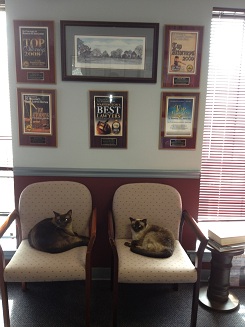The Extra Stress of Caregiving in a Second Marriage
Published: Fri, 02/21/14
|
|
|
 | |
|
Ask the Expert: Your Elder Law Questions Answered by Evan H. Farr, CELA |
|
The Extra Stress of Caregiving in a Second Marriage
If you cannot view the image below, please read the article on our blog.
 Q. I am a caregiver for my husband of 10 years, Frank, who is 75 and has dementia. As his dementia is worsening, bills are piling up and decisions about long-term care need to be made. I am feeling alone, exhausted, and overwhelmed, and could use some help from my husband's two adult daughters from his previous marriage. So far, asking them for assistance has been difficult, to say the least. When I call them on the phone, I get a lot of advice but no solutions and no offers of help from either one of them. I even called a family meeting to discuss how to manage things, but no one showed up. Is what I am describing common, and what do you suggest I do?
A. Every year, nearly one million people over the age of 65 marry for the second time, and many become the primary caregivers when his or her spouse develops a geriatric disease or dementia. In many instances, as in your situation, when they reach out to the spouse's children from the previous marriage they often find little help. In your question, you didn't mention the relationship your stepdaughters have with their father. Maybe your husband's children are unwilling to help because they feel anger towards their father as a result of their parent's divorce. Maybe your husband's children blame you for their family pain, or disagree with decisions you have made concerning his care. Alternatively, maybe his children are simply focused on raising their own families and building their careers. Even if your husband's children want to help, they are often limited in what help they can provide. A recent study published in The Journal of Marriage and Family confirms that those who remarry later in life face some unique challenges when dealing with an ailing spouse. Researchers interviewed 61 women for the study and found cases where adult stepchildren refused to believe a diagnosis of dementia or refused to participate in decision-making about caregiving. Some women had had lawsuits filed against them by their husband's adult stepchildren, claiming money was being misspent. Generally, these women felt that their stepfamilies created conflict or that their support was minimal or nonexistent. Dr. Carey Wexler Sherman, one of the researchers who conducted the study, hopes that by shedding some light on the difficulties faced by these caregivers, professionals can help them come up with strategies to get the support they need. Having gained some insight into the spouse's point of view, Dr. Sherman hopes to conduct a similar study from the stepchildren's perspective.
The results were not completely stark, however, and there is hope for you and your stepdaughters. Fifteen women felt that their relationships with their stepfamilies were working. Some even framed the new reality with their husbands as a time of healing between their stepchildren and them, or between the father and his children. Relationships that were once strained between parent and child were often healed during this time of convalescence. The adult children are able to re-establish familial ties with their parent, while building a stronger relationship with their stepparent. So, how can you get to a place with your stepdaughters where they are willing to step in and help? The answer is that you need to find a way to come together and find common ground. It can be done, but sometimes it takes a great deal of effort on all sides. So, how do you reach those who are at arm's length?
Persons with dementia and their families face special legal and financial needs. At The Fairfax and Fredericksburg Dementia Planning Law Firm of Evan H. Farr, P.C.,
we are dedicated to easing the financial and emotional burden on those suffering from dementia and their loved ones. If you have a loved one who is suffering from dementia, we can help you prepare for your future financial and long-term care needs. We help protect the family's hard-earned assets while maintaining your loved one's comfort, dignity, and quality of life by ensuring eligibility for critical government benefits. If you have a loved one, such as your husband, who is nearing the need for long-term care, and if you're done with mediation, or if you're a family everyone already gets along, please call The Fairfax and Fredericksburg Elder Law Firm of Evan H. Farr, P.C. at 703-691-1888 in Fairfax or 540-479-1435 to set up an appointment f-or a no-cost consultation. ------
 Gadgets to Help with Senior Moments
 Dear Saki and Alley,
I always lose my keys, my glasses, and the remote control. It is very frustrating for me and I am often late to appointments and missing Jeopardy (my favorite show). What are some gadgets that you recommend that can help me to find things easier? Thanks, Drew A. Blank --- Dear Drew, Losing things, at least temporarily, is frustrating. Fortunately, there are useful and innovative technology gadgets available to help us keep track of our things, and ourselves. Examples include:
If you've ever experienced senior moments like losing things, forgetting passwords or pin numbers, or forgetting someone's name, you're not alone. As we age, the brain often experiences some normal age-related memory loss. People with normal age-related memory loss, though, are usually able to compensate for these changes by using lists and other memory aids, such as the tracking devices we described. Senior moments are a normal part of aging, as long as they don't generally impair daily functioning. When senior moments make it hard to manage daily affairs, they may be early warning signs of Alzheimer's disease or another dementia. If you think your senior moments go beyond the realm of minor annoyances and occasional forgetfulness, be sure to see a doctor so your symptoms can be evaluated. Read our blog post about the Sage Test, a dementia test you can take at home and bring to your doctor for the results.
Purrs,
Saki and Alley About Saki and Alley: Saki and Alley are nine year old Siamese cats that belong to Jeannie and Evan Farr and live here at the Farr Law Firm. They are very sweet and smart and love all the attention they get from staff and friendly clients at the firm. We encourage you to visit us and meet these extraordinary Siamese cats! |
|







